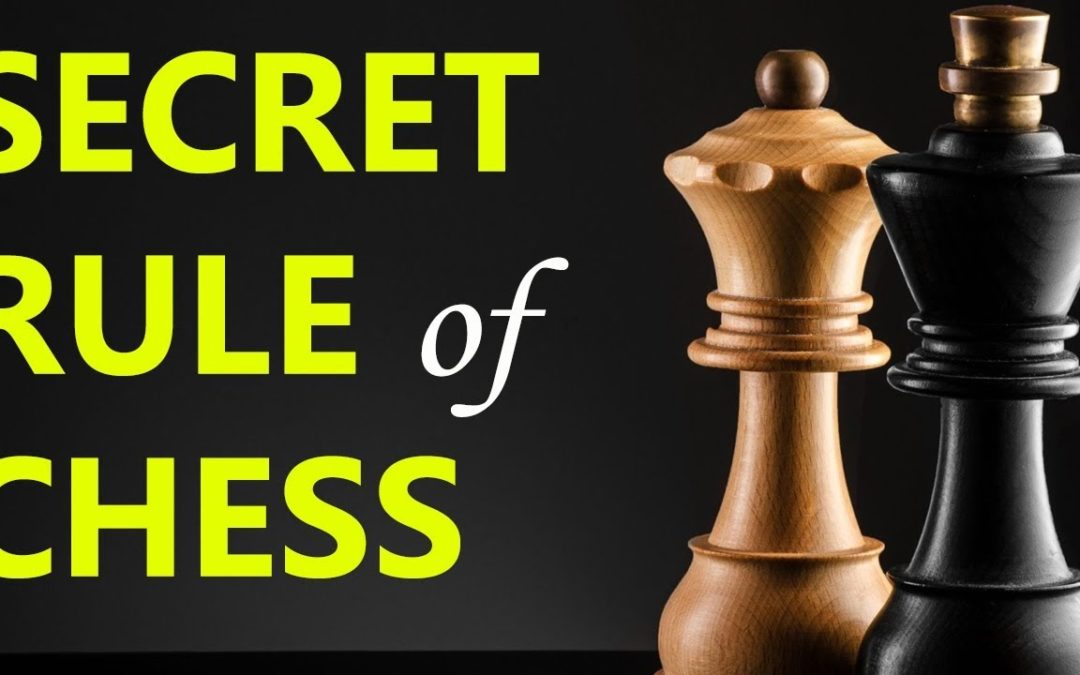
by TEJ | Feb 3, 2020 | Fun and Leisure Humor
 Last weekend I did something new and different. I tried a new adventure called an Escape Room. For the uninitiated, escape rooms are the latest fad activity in which they lock 8 to 14 people in a room. The group is given clues and puzzles to solve in order to make their escape. I’m a puzzle person. Sounded like a fun outing.
Last weekend I did something new and different. I tried a new adventure called an Escape Room. For the uninitiated, escape rooms are the latest fad activity in which they lock 8 to 14 people in a room. The group is given clues and puzzles to solve in order to make their escape. I’m a puzzle person. Sounded like a fun outing.
I invited thirteen of my closest, soon-to-be-ex-friends to join me. The theme of our escape room was Jules Verne’s classic novel, 20,000 Leagues under the Sea. Our mission: Find the key to escape before our submarine, the Nautilus, ran out of air.
Being a natural-born leader, I assumed the part of legendary Captain Nemo and immediately took charge of this mission. I’m not sure precisely when the mutiny began. It might have been when I ordered my crew to report every five minutes with any new clues they had unearthed. Or maybe it was when I ordered them to swab the decks. Group morale is such a touchy thing.
Turns out escaping from an escape room is an extremely difficult challenge. We had to solve a myriad of puzzles to unlock boxes, only to find inside even more enigmatic puzzles. As the Captain, I quickly came to two important realizations: 1) getting out of this escape room was going to require enormous brain power and concentration, and 2) I did not bring nearly enough money to bribe the staff to tell me what the clues meant.
(more…)

by TEJ | Feb 18, 2019 | Parenting and Family humor

Did you know chess was invented in India in the 6th century? An even more obscure factoid is that “The Secret Rules of Chess” were invented by one T. Jones in the late 20th century. It was time someone taught our impressionable youth these new rules. That somebody was me.
[The following is a partially true story.]
As a parent, I have long tried to be a role model for my children. I have always striven to teach my daughters fundamental values like integrity, honesty and good sportsmanship – except when it came to chess. Then all bets were off.
When my girls were seven and eight years old, respectively, I taught them the ancient game of chess (something for which they have never forgiven me). Initially, their skills were rudimentary at best. But after a couple years of patient mentoring, they were able to name most of the pieces on a multiple choice quiz.
Eventually, their games improved to the point that, over their vehement protests, I enrolled them in a chess tournament at a local elementary school. Upon arrival, I noticed that most of the kids and their parents had something in common: almost none of them looked like me. That’s because, of the 300 kids in this competition, 95% of them were either Chinese, Korean, Indian, Pakistani, or some other Asian demographic. I’d heard about Tiger Moms, but never have I seen so many in one room – the intensity in their eyes was daunting. As for the remaining 5% of kids, they didn’t stand a chance.
My girls were born in China, so on paper at least, they fit the demographics. But that’s as far as the similarity went. Factor in that I was their teacher and they had about as much chance of winning this competition as I had of becoming the next Pope.
The event went on forever, beginning at 8am on a Saturday and ending sometime after I lost consciousness from ennui. Every child played five rounds that day. After one match was over – which in my kids’ cases was usually about nine minutes – contestants were sent back to the cafeteria.
In these long breaks, parents ensured their prodigies devoted every minute to sharpening their skills, practicing feverishly until the next round arrived. I was so bored that after a couple hours, I broke down and challenged some of these youngsters to a game. I don’t want to brag, but there was this one third grader, Jason Kim, who needed 21 moves before he checkmated me. That was my best performance. Most games were over shortly after I located my horse.

This is the scene at the chess tournament I enrolled our girls in when they were in elementary school. What a wonderful way for a parent to kill 10 hours on a Saturday, that is, if you find watching bowling a little too exciting.
No doubt about it, these prepubescent grandmasters were extremely sharp. After a string of five embarrassingly quick defeats, I knew it was time to shake things up a bit. I decided to give these miniature Bobby Fischers a lesson by employing my own Secret Rules of Chess. My next opponent was a nine-year-old named Raza. After a conservative opening, Raza, boldly advanced his bishop into an attack position against my exposed queen.
I contemplated my options, and then, in a maneuver I’m fairly certain Raza did not see coming, I nudged my queen backwards off the board and brought her back onto Raza’s end of the board, putting his king in check. Raza jumped up and exclaimed, “You can’t do that!”, to which I calmly replied, “Apparently you’re not familiar with the Queen’s Revolt.”
He was, of course, more than a little confused, in part because the Queen’s Revolt doesn’t exist (in chess, that is). That’s when I began to weave a tale of how this tactic was first used by the Duke of Hapsburg against the Viscount of Mordovia in 1542.
In game after game, I continued to keep my young foes completely off balance with one surprising technique after another:
The Bad Bishop’s Deceit: My bishop gets to progress diagonally in two directions on the same turn – and can leap over pawns.
The Peasant’s Uprising: This can only be done one time per game – and only by the black chess pieces (because I was playing black). I can select one pawn to become a queen for four consecutive moves.
The Knight’s Alphabet: Here, my knight can do the usual L-shaped trot, followed by a W-shape, and even a Z.
Storming the Castle: One of my favorites. I jettison both of my rooks in unison the length of the board thereby taking out both of my adversary’s rooks and any other playing piece in their path. This is a particularly powerful stratagem but one which should only be attempted if your opponent is very young and incredibly gullible.

This chess cherub would have defeated me in three minutes had I not utilized a daring, obscure strategy – the Wizard’s Distraction: I exclaim, “Look, a scary monster!”, my opponent turns to look, and I steal her bishop.
Of course, with each “secret rule of chess” I made up, I explained in great detail its fake historical origins, dropping the names of plausible sounding kings, earls and baroness, and how, while not recognized in the United States (or China or Pakistan or India or any country where any of these kids’ families were from) they were widely accepted in places like Lichtenstein, Moldova or any obscure European country I was confident they’d never heard of.
I quickly garnered a string of five straight victories. My opponents had no clue how to defeat me. I even trounced the enormously talented seven-year-old Kevin Wong. I must admit, he would have beaten me in seven moves, had I not cleverly resorted to the masterful King Arthur’s Evasion: when he had me in check, I simply advanced my king the entire length of the board, jumping over several of Kevin’s pieces, and took out his rook.
Kevin protested until I patiently explained that this stratagem was first used by King Henry VIII to defeat Napoleon when they met for the World Chess championship in Reykjavik, at the height of the Spanish-American War.
Everything was going along swimmingly, until in the championship round, ten-year-old Raghav Patel employed a daring gambit he had learned from me – the ingenious Sultan’s Escape. He boldly took his king off the board for one turn to avoid being checkmated and then returned it safely to a different part of the board. Raghav was immediately required to forfeit the championship match to his rival, Fatima Shambhani. Apparently, tournament officials weren’t familiar with this move which, as I told Raghav, was first done by a Moghul sheik in the 15th century, during the Irish Potato Famine.
Several parents, who if you ask me, were wired way too tightly, filed a petition to have me permanently banned from any future chess tournaments. I guess some people just have no appreciation for the finer nuances of this ancient game.
That’s the view from the bleachers. Perhaps I’m off base.
[Author’s disclaimer: To all you parents who by now have concluded I’m a terrible person for duping young, impressionable children with my preposterous moves and tales, let me set the record straight. I won’t deny that I made up all these fake chess moves and ridiculous back stories. But the kids quickly picked up on the fact I was making it all up for entertainment purposes, and they were enthralled and laughed as I demonstrated new ridiculous tactics. And no, Raghav Patel did not try the Sultan’s Escape (though I think he was tempted). And everybody lived happily ever after. – The End.]
 PS: If you enjoyed this week’s post, let me know by posting a comment, giving it a Like or sharing this post on Facebook.
PS: If you enjoyed this week’s post, let me know by posting a comment, giving it a Like or sharing this post on Facebook.
Check out my latest humor book: YOU’RE GROUNDED FOR LIFE: Misguided Parenting Strategies That Sounded Good at the Time
© Tim Jones, View from the Bleachers 2019

by TEJ | Aug 15, 2018 | Business humor, Fun and Leisure Humor
 Throughout my life, I’ve held a variety of jobs – from Sales Director to Director of Sales and everything in between. Given the chance, I could have been a superstar selling advertising, life insurance or legal research to anyone from astronauts to Aborigines, had my employers not fired me for poor performance and incompetence. So, you can imagine my excitement when I recently heard about an opening that sounded right up my alley: Working the BINGO booth at our local county fair.
Throughout my life, I’ve held a variety of jobs – from Sales Director to Director of Sales and everything in between. Given the chance, I could have been a superstar selling advertising, life insurance or legal research to anyone from astronauts to Aborigines, had my employers not fired me for poor performance and incompetence. So, you can imagine my excitement when I recently heard about an opening that sounded right up my alley: Working the BINGO booth at our local county fair.
When word got to me that a local non-profit needed help with the fair’s BINGO operations, I knew I was the perfect candidate. When the BINGO Boss man called, I was totally prepared. I had updated my resume to reflect relevant skills that made me uniquely qualified for this challenge – most notably that I was adept – even under pressure – at differentiating most letters from numbers.
I was surprised at how few questions the recruiter posed during the interview. His opening pitch was, “Are you willing to work the BINGO booth at the fair this weekend?” From the get-go, I picked up on serious buying signals. Not to appear immodest, but I am a tenacious negotiator. I asked him what the base salary was. He said there was no salary. I interpreted that to mean it was commission-only. No problem, I thought. That just means the sky’s the limit.
I asked about stock options, how the health insurance plan worked, whether the job came with a matching 401K and when I’d be eligible for my four weeks of vacation. In the end, we reached what I feel was a fair compromise: No salary, vacation, stock options or health coverage. But I wrangled free entrance to the entire fairgrounds – including behind-the-scenes access to the rabbits exhibit and the tractor pull competition. (more…)

by TEJ | Sep 1, 2014 | Fun and Leisure Humor
 I love playing sports. My friends love to play me in sports, too. For years I thought it was because they enjoyed my company. They later told me that I tend to get on their nerves. So why do they keep playing me? Answer: Because they love the thrill of victory, which they are assured of experiencing any time they play me – in any sport.
I love playing sports. My friends love to play me in sports, too. For years I thought it was because they enjoyed my company. They later told me that I tend to get on their nerves. So why do they keep playing me? Answer: Because they love the thrill of victory, which they are assured of experiencing any time they play me – in any sport.
Ya’ know that old expression “He’s a jack of all trades but a king of none”? Well, I’m more like the three of clubs. You see, as much as I love sports, I’ve never really been that good at them.
Case in point: I’ve played the same guy in tennis for 12 years. Let’s call him “Steve”, because, well, his name is Steve. In that 12 years, I can tell you the exact number of sets I have won against Steve. Exactly zero.
I’ve been golfing with another friend for 15 years. I’ll just refer to him as “Kevin from Ballard” because I don’t feel it’s appropriate to reveal his last name here – but since I know you’re curious, it’s “Breecher.” I have never beaten Kevin Breecher in golf – ever. Every year he increases my handicap advantage. He now gives me 29 strokes. He still always wins. Last month, he offered to hit all his tee shots blindfolded. He won by five strokes.
One thing my friends Steve and Kevin have in common – besides being annoying winners – is that they always feel better about themselves after trouncing me. It never gets old for them.
(more…)

 Last weekend I did something new and different. I tried a new adventure called an Escape Room. For the uninitiated, escape rooms are the latest fad activity in which they lock 8 to 14 people in a room. The group is given clues and puzzles to solve in order to make their escape. I’m a puzzle person. Sounded like a fun outing.
Last weekend I did something new and different. I tried a new adventure called an Escape Room. For the uninitiated, escape rooms are the latest fad activity in which they lock 8 to 14 people in a room. The group is given clues and puzzles to solve in order to make their escape. I’m a puzzle person. Sounded like a fun outing.
















